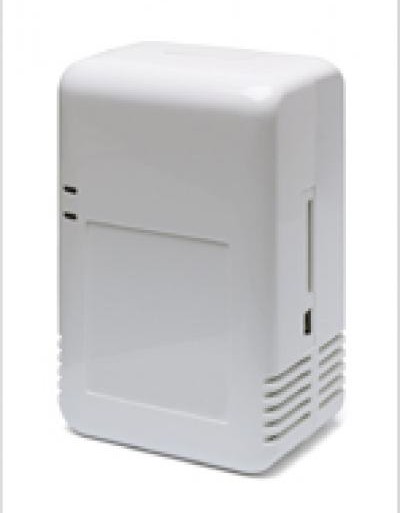Marvell Puts A PC In A Plug

Network silicon maker Marvell, packs the guts of a computer into a unit the size of a small power transformer, and coined the term “plug computing”
The SheevaPlug unit could make sense for small businesses owners, giving them an alternative to PCs for a software service, says Marvell, announcing a Plug Computing initiative to promote the concept.
Marvell intends to make “high-performance, always on, always connected, and environmentally friendly computing” readily available for developers and end-users. A Plug Computer, as Marvell describes it, is small enough to plug directly into a wall socket and is designed to draw so little power that it can be left on all of the time. Unlike other embedded devices in the home, it contains a gigahertz class processor to offer PC class performance.
“There is no doubt that home networks need to become more intelligent and easier to use by offering value added services for the consumer,” said Marvell Semiconductor’s vice president and GM of enterprise business unit, consumer and communications business group, Dr. Simon Milner. “We have created an open computing platform for developers in a consumer and eco-friendly form factor. Marvell’s goal is to accelerate the development and availability of innovative software and services in the home.”
The SheevaPlug development platform uses a Marvell Kirkwood processor based on an embedded 1.2GHz Sheeva CPU equipped with 512 Mbytes of FLASH and 512 Mbytes of DRAM. The enclosure is designed to plug directly into a standard wall socket and is designed to draw less than one tenth of the power of a typical PC being used as a home server.
Connection to the home network is via Gigabit Ethernet. Peripherals such as direct attached storage can be connected using a USB 2.0 port. Marvell says features like multiple standard Linux 2.6 kernel distributions are supported on the SheevaPlug development platform and enable rapid application development.
“Plug computing is a logical evolution for the digital home in the same way enterprise applications moved from servers to network appliances,” said Hajime Nakai, the director and a member of the board of Japanese SMB technology company Buffalo, Inc. “Marvell is probably the only company that can pack so much processor performance into such a compact form factor.”
A few products based on Marvell’s SheevaPlug platform are already available, having debuted at this year’s Consumer Electronics Show (CES). Digital networking company Axentra’s HipServ software is running on a SheevaPlug that offers a complete home server platform and applications suite which allows users to store, manage, share, view, or listen to digital media content in the home or remotely.
Cloud Engines, Inc., which markets the Pogoplug, connects an external hard drive to the Internet so users can share and access files from anywhere. The device won praise from the media and tech geeks alike when it launched at CES. The company is currently offering a promotion that reduces the price of the Pogoplug to $79 (£55) from $99 (£69).
Marvell also offers the SheevaPlug development kit on its Web site for $99 (£69). Linley Gwennap, principal analyst of The Linley Group hailed Marvell’s leadership in designing high-performance, power-efficient CPUs. “SheevaPlug leverages this capability to deliver an impressive amount of compute performance in an innovative form factor,” Gwennap said. “As a silicon provider, Marvell is providing a flexible platform for a wide variety of applications that serves both consumers and service providers.”